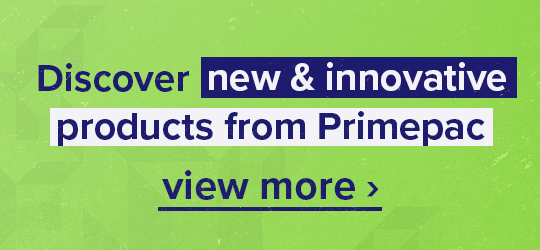.jpg?width=1000&height=665&name=pexels-mali-maeder-802221%20(1).jpg)
Plastic regularly ends up as waste in our environment, harming our wildlife and contaminating our food and water. As a result, New Zealand is entering the next step in its single-use plastics ban. From the 1st of July 2023, several single-use plastic products will be phased out of use in New Zealand.
For many industries, this will cause a significant shift to sustainable packaging alternatives. To help you prepare for this, we’ve explained what items will be restricted, what you need to do, and which products you should use instead.
Find our full breakdown of the plastic ban in this blog, where we list what's being banned and share the most effective alternatives.
Single-use plastic ban NZ
To reduce the huge environmental impact our small country has, the government is gradually banning the manufacture, sale or distribution of most single-use plastics. This is in accordance with the guidelines in Section 23 1b of the Waste Minimisation Act 2008.
In October 2022, the following items were banned:
- PVC meat trays
- Polystyrene takeaway packaging
- EPS grocery packaging
- Plastic drink stirrers
- Plastic cotton buds
- Oxo-degradable and photo-degradable products
In July 2023, the following will be banned:
- All single-use plastic produce bags
- Plastic straws
- Produce labels
- Plastic plates, bowls, and cutlery
In 2025, the following will be banned:
- All remaining food and beverage packaging made with PVC or polystyrene
There are sustainable alternatives for these items so if the ban will affect you, consider trialling some before the 1st of July. This will allow you to refine your processes and secure a reliable supply chain before it’s too late.
Plastic products to phase out from 1 July 2023
- Single-use plastic drinking straws
- Single-use plastic tableware and cutlery
- Single-use plastic produce bags
- Non-home compostable plastic produce labels
Single-use plastic drinking straws
This includes any single-use drinking straw that contains any type of plastic, including compostable or biodegradable plastic. From the 1st of July 2023, the sale of plastic straws will be exclusive to disabled people and those with health conditions.
Single-use plastic tableware and cutlery
This includes any tableware and cutlery that is made predominantly of plastic (including recyclable, compostable, and biodegradable plastic) and is designed to be used once or a limited number of times before being thrown away.
This includes:
- Single-use plastic bowls, plates and platters.
- Single-use forks, spoons, teaspoons, knives and chopsticks.
- Single-use cutlery that is part of the food packaging (eg, cutlery sold with single-serve ice cream)
Single-use plastic produce bags
This includes any single-use unsealed plastic bags that are provided by the retailer to pack fresh produce at the place of purchase. The regulations do not ban single-use plastic bags if they are part of the packaging for pre-packaged produce (sealed or not sealed) such as bagged lettuce, a sealed bag of apples, or herbs in a plastic sleeve.
Non-home compostable plastic produce labels
Any plastic label adhered to domestically grown produce and intended for the domestic market must be certified home-compostable. All produce labels must meet one of the following standards:
- AS 5810-2010 Biodegradable plastics suitable for home composting.
- NF T51-800 Plastics — Specifications for plastics suitable for home composting.
The regulations do not apply to labels used on produce that is intended for export or any produce that is labelled before 1 July 2023 and is already in the supply chain.
Note that the label adhesive is not required to be home compostable until 1 July 2025, as are labels on imported produce.
What happens if you don’t comply with the plastic ban
All businesses are legally obligated to comply with the new regulations and penalties will apply for non-compliance. At first, the Ministry for the Environment will take an educational approach and offer advice to help businesses understand their responsibilities.
However, when businesses demonstrate non-compliance, they may face:
- Prosecution
- Fines of up to $100,000 for each offence
Suspected non-compliance can be reported from the 1st of July via this online form.
How to identify single-use plastic items
To decide if a plastic item is single-use, ask the following questions:
- Is it designed or intended to be used only once?
- Is there a limited number of times it can be used before being disposed
of? - Is it supplied in a context where items are only used once?
- Is it supplied in a context where items are provided for free or at a low cost?
- Is it marketed as disposable or single-use?
If you answered ‘yes’ to any of the above, the item is most likely single-use. You may also want to consider the product warranty, ordinary consumer behaviour, compliance with an overseas reusability standard, and whether the product meets dishwashing standards. You can also follow the diagram below based on the article from the Ministry for the Environment.
Sustainable packaging
Not all sustainable alternatives are made equal. To make sure your new product is a viable option, consider the following traits:
- Reusability
- Material composition
- Product performance
- Production process
- Recycled content
If you opt for recyclable packaging, try to find one that is easy to recycle in a standard processing facility. If the packaging cannot be recycled in their local facility, most consumers will choose to throw it in the landfill instead.
Paper packaging
As plastic products of all shapes and sizes are now being banned, paper packaging material is one of the best places to start.
Kraft paper
Kraft paper is used to wrap products and fill voids in cartons. Our kraft paper is 100% recyclable and comes in 60gsm, 80gsm,120gsm or 200gsm. We also supply heavy-duty 165gsm kraft paper for thicker wrapping and our 200gsm recycled kraft paper is ideal for void filling.
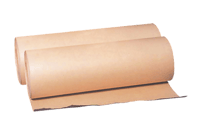
Protective packaging
You don’t need plastic bubble wrap anymore because paper protective products work just as well. Our Airwave Paperwave Film is made of biodegradable recycled paper and the air cushion protects your products during storage and delivery, then the film can be recycled.
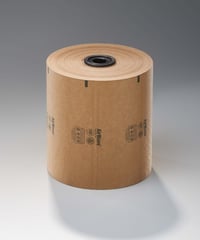
Corrugated cardboard
The ribbed fluting inside corrugated cardboard gives it increased strength, which can effectively protect items during transport. It can be used for both small and large packaging requirements and comes in 75m rolls of various sizes. Find the full range of sizes for Auckland, the North Island and the South Island here.
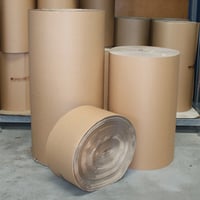
Pallet pads
If you use pallets, cardboard pallet pads are a great way to protect your products from dirt, dust, wood, moisture, and sharp objects.
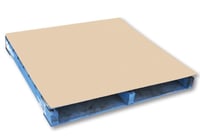
Wine cartons
To restrict movement, our Freightways-approved wine cartons feature 3mm fluted dividers and 10mm honeycomb neck stabilisers, preventing bottles from smashing.
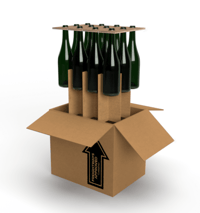
Cartons and boxes
Paper packaging boxes, or cardboard cartons, are commonly used to store and transport all kinds of products because they’re versatile and affordable.
.jpeg?width=200&height=256&name=Standard%20stock%20cartons%20%20(1).jpeg)
Our popular cardboard cartons include:
- Stock cartons (North Island/South Island)
- Fishtail cartons
- Diecut boxes
- Heavy-duty cartons (North Island/South Island)
Paper tape
Tape can be used to seal boxes, display shipping instructions, show signs of tampering, and showcase custom branding. Our recyclable Kraft Paper tape has excellent peel adhesion on both raw aged and clean timber surfaces and is suitable for packaging and picture framing.
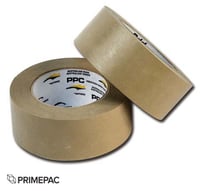
Paper doculopes
Paper doculopes provide plenty of protection for your packing slips, invoices, and other paperwork, and also simplify waste management. Our Paper Doculopes are biodegradable and come marked with either “Packing list enclosed” or “Packing slip/invoice enclosed”.
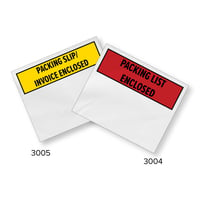
Paper bags
Paper packaging bags create a pleasant customer experience and are fully recyclable. Our Paper Twist Handled Bags are ideal for retail applications, with high-quality 100gsm kraft paper, large side gussets, flat base, and twisted paper handles. Our Flat Brown Paper Bags are also great for protecting flat items like documents, magazines, and photos.
Sustainable packaging for food
Food packaging is one of the most affected by this phase-out. With markets, takeaways, and supermarkets so reliant on these single-use items, it will be an adjustment for many.
Fortunately, paper packaging for food and other innovations have made it more achievable. At Primepac, our food and beverage range has all you need to prepare your business for July, including:
It’s time to make a change and our friendly team is here to help. Contact us today or download our sustainable packaging catalogue to find all the packaging products you need.

.png?width=555&height=860&name=How%20to%20tell%20if%20a%20plastic%20item%20is%20single-use%20%20Primepac%20blog%20(2).png)
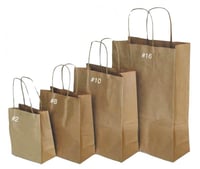
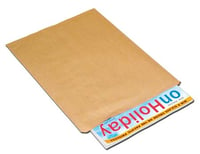


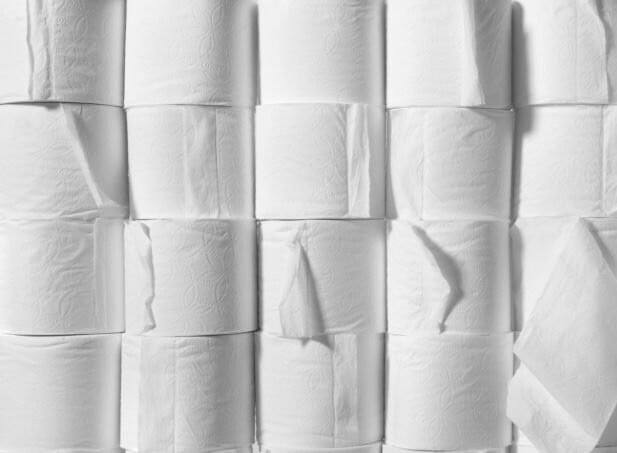
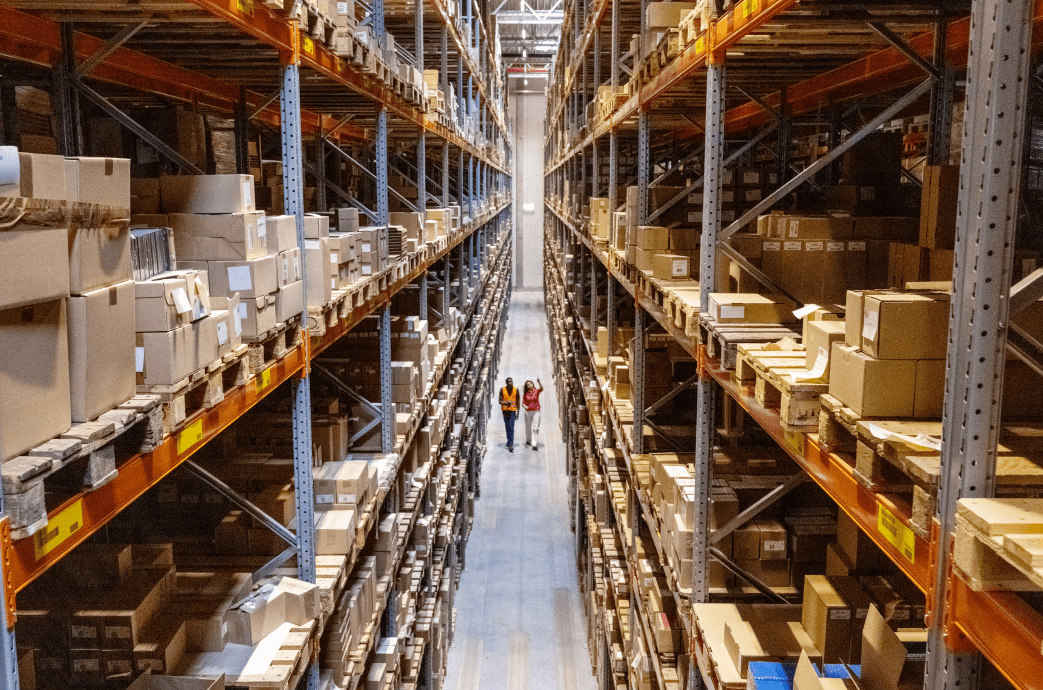
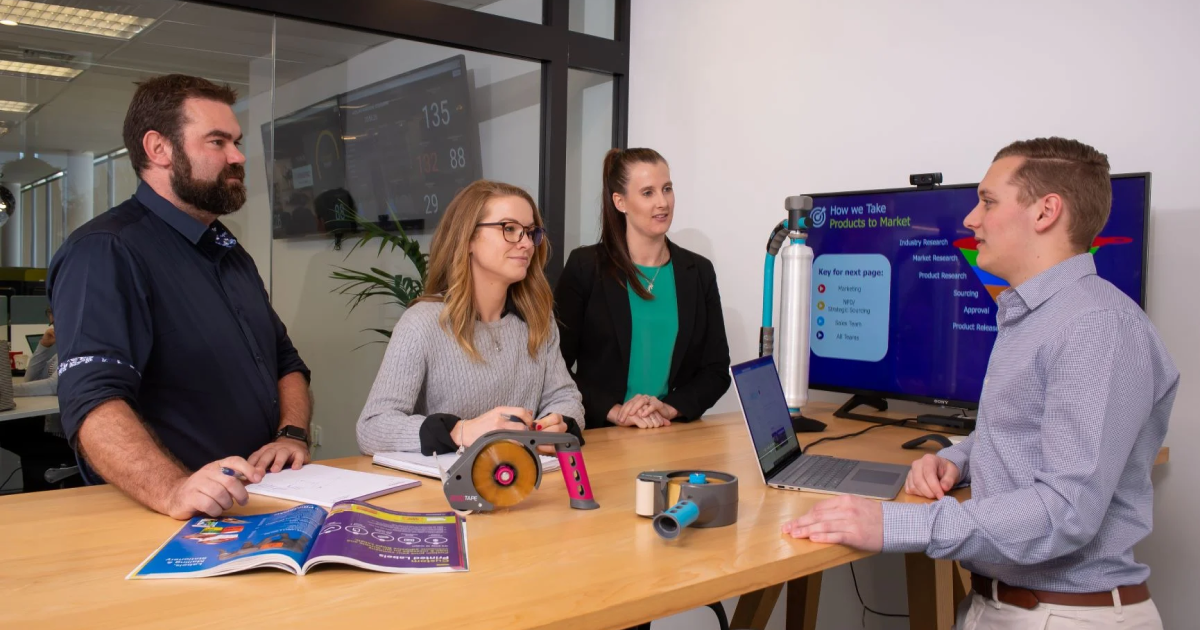
.png)
